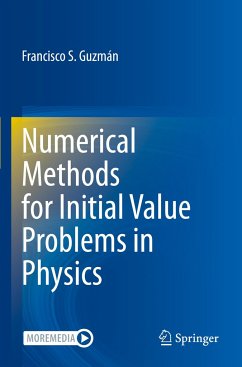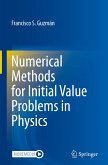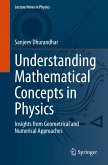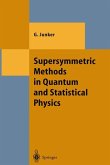This textbook is a comprehensive overview of the construction, implementation, and application of important numerical methods for the solution of Initial Value Problems (IVPs). Beginning with IVPs involving Ordinary Differential Equations (ODEs) and progressing to problems with Partial Differential Equations (PDEs) in 1+1 and 3+1 dimensions, it provides readers with a clear and systematic progression from simple to complex concepts.
The numerical methods selected in this textbook can solve a considerable variety of problems and the applications presented cover a wide range of topics, including population dynamics, chaos, celestial mechanics, geophysics, astrophysics, and more. Each chapter contains a variety of solved problems and exercises, with code included. These examples are designed to motivate and inspire readers to delve deeper into the state-of-the-art problems in their own fields. The code is written in Fortran 90, in a library-free style, making them easy toprogram and efficient to run. The appendix also includes the same code in C++, making the book accessible to a variety of programming backgrounds.
At the end of each chapter, there are brief descriptions of how the methods could be improved, along with one or two projects that can be developed with the methods and codes described. These projects are highly engaging, from synchronization of chaos and message encryption to gravitational waves emitted by a binary system and non-linear absorption of a scalar field. With its clear explanations, hands-on approach, and practical examples, this textbook is an essential resource for advanced undergraduate and graduate students who want to the learn how to use numerical methods to tackle challenging problems.
The numerical methods selected in this textbook can solve a considerable variety of problems and the applications presented cover a wide range of topics, including population dynamics, chaos, celestial mechanics, geophysics, astrophysics, and more. Each chapter contains a variety of solved problems and exercises, with code included. These examples are designed to motivate and inspire readers to delve deeper into the state-of-the-art problems in their own fields. The code is written in Fortran 90, in a library-free style, making them easy toprogram and efficient to run. The appendix also includes the same code in C++, making the book accessible to a variety of programming backgrounds.
At the end of each chapter, there are brief descriptions of how the methods could be improved, along with one or two projects that can be developed with the methods and codes described. These projects are highly engaging, from synchronization of chaos and message encryption to gravitational waves emitted by a binary system and non-linear absorption of a scalar field. With its clear explanations, hands-on approach, and practical examples, this textbook is an essential resource for advanced undergraduate and graduate students who want to the learn how to use numerical methods to tackle challenging problems.








